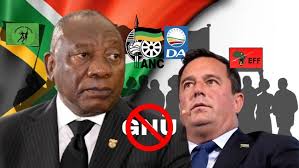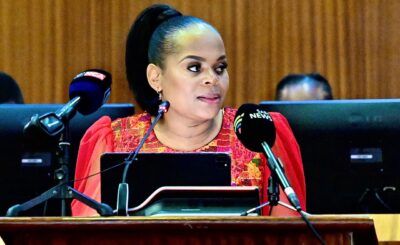IS UMALUSI USING ITS LEGISLATIVE MANDATE TO MAKE DECISIONS IN THE BEST INTEREST OF LEARNERS DURING STANDARDIZATION?
It is that time of the year wherein the nation and the public are anticipating the much awaited release of the Matric Results. As we all know, these results will be the academic outcome of the cohort which has been considered to have experienced the impact of one of the most devastating pandemics in human history, COVID-19.
We will recall that many education systems in the world came to a halt during that difficult time, but ours – which was perceived by many to be fragile – soldiered on and continued to deliver quality education. Learner numbers have increased from about 12 million to 13 million over the past three years, which became even more prevalent for grade 12, deeming it impossible for learners to have been deprived of education at that time.
In implementing the resolution of the ANC on Examinations Council for South Africa’s basic education system, the Minister could – from this year onwards – begin with the inclusion of matric results from all assessment bodies, including Independent Examination Board (IEB) and South African Comprehensive Assessment Institute (SACAI) instead of these small and elite assessment bodies engaging in the exclusive release of their own results.
This would assert the Minister’s powers as the ultimate authority in South Africa’s basic education system.
Considering this prospect, we now have the benefit of hindsight on how Umalusi’s decisions were made during the standardization of matric results for the 2020 and 2021 cohorts. I am on record to have demonstrated how Umalusi lost the opportunity to prove their value, relevance and effectiveness to ordinary South Africans in terms of the Class of 2020. The decisions for the Class of 2021 were much more favourable than the Class of 2020, which was much more deserving than the Class of 2021 given the conditions they had to write their exams in.
We are now waiting with bated breath for a decision from Umalusi and the results of the Class of 2022, who – as previously indicated – suffered the most brunt from COVID-19. In addition to a pandemic-struck environment, load shedding also compounded the challenges of the Class of 2022.
To top it off, the error in the Mathematics Paper 2 further complicated the situation for this Class. Many experts weighed in on this matter, including psychologists, on the possible impact of this error to the performance of learners.
We can only hope that this time around when Umalusi’s decisions and the results of the Class of 2022 become public, it will be an indication that Umalusi has finally made decisions that are in the very best interest of our learners.
We have also seen that small assessment bodies, such as IEB and SACAI, received favourable decisions in 2020 compared to the Department of Basic Education (DBE). We will again thoroughly compare these side by side once they become available.
Panyaza Lesufi, an education activist, writes in his personal capacity






